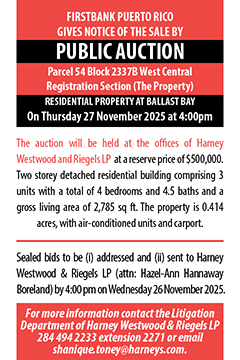Politics & Race in Bermuda
As we are being “open and honest’ about racial issues worldwide, regionally and locally, let us take a moment to discuss race and politics in Bermuda.
For those who do not know, Bermuda is a country divided along racial lines between blacks and whites for over 400 years.
Legacy of Apartheid
Blacks were legally barred from government jobs, jobs in banks and eating in certain establishments until the 1960s. Additionally, we had legal segregation of public schools until 1970 with blacks prevented from attending “white schools”.
This has led to a society and individuals deeply separated and scarred.
Our politics has been equally divided with two dominant parties for the last fifty years.
The Progressive Labour Party (PLP) was formed in 1963 to represent the needs of the working class, read blacks.
The United Bermuda Party (UBP) was formed in 1965 to represent the social, economic and political interests of the business owners, read whites. In 2011 they changed their name to the One Bermuda Alliance (OBA).
So, with the demographics in Bermuda being 60 percent Black, 30 per cent White and 10 per cent “other”, both our economics and politics, mirrored that of the Apartheid era of pre 1994 South Africa.
“Did you know that the Wikipedia entry for “Racial polarisation” features Bermuda as a prime example? It’s outdated, but it hits on an important point: Bermudian politics is heavily divided along racial lines.”
https://medium.com/@demoleus/the-third-bermuda-cc619b6660e6
Safe seats
During the lead up to the 2012 General Election, I had the opportunity to canvas alongside Senator Vance Campbell, when he was running as a candidate for Constituency 9, which encompasses Eastern Devonshire and Western Smiths parish.
Reviewing the demographics, one will see that this particular constituency comprises roughly sixty percent white and forty percent black residents. These demographics have ensured that the United Bermuda Party and now, the One Bermuda Alliance, have maintained this as a safe seat for decades.
MP Trevor G. Moniz has been the sitting representative for over twenty-five years.
On the other hand, there are seats that have demographics of sixty per cent plus residents who are black Bermudians. What this means is that the Progressive Labour Party also has safe seats.
One prime example would be Constituency 15, where the PLP enjoys 90 percent of the vote, in every election.
Out of the Thirty-six constituencies, approximately two-thirds are safe seats for either party.
Again, now that we are going to have an honest discussion on race. We can accept why many seats are safe seats. So, let us drill down a little further about canvassing.
Closed doors
Anyone who has run for politics in Bermuda knows, depending on whichever party one represents, that there will be those who will either open their doors or keep them closed.
Unfortunately, more often than not, those doors either open or close, based on the race of the candidate.
A white candidate running for the OBA in a PLP stronghold, most likely, will not get invited into every home. Likewise, a black candidate running in an OBA stronghold would face an uphill battle to see every potential voter.
The net result is that many candidates, from either side, become weary of knocking on the doors of those who may not share the same pigmentation.
This ends up with voters, of all shades, never getting to see both candidates, due to persons not knocking on their doors, based initially, on preconceived thoughts of how someone may or may not vote.
Once again, if we are being honest, we all have experienced, in one way or the other, racialised politics in Bermuda.
So where do we go from here?
Engage, engage, engage
Personally, I would encourage all sitting MPs or those wishing to get elected, to take a long look at the list of those living in the constituency you represent or wish to represent, then take the initiative to reach out to every last one of those persons.
Many may be surprised at the reactions that they get.
We have, potentially, reached a point in our planet, region and islands, that persons are more open to honestly discuss the historically negative realities of racism.
Any given politician or would-be politician would like to have everyone voting for them. That is a given desire.
However, at this moment in time, it is equally as important, for us a country and as individuals, to establish and build relationships with those we normally have not had honest conversations with.
That is what leadership is truly about.












.jpg)








.png)















1 Response to “Politics & Race in Bermuda”